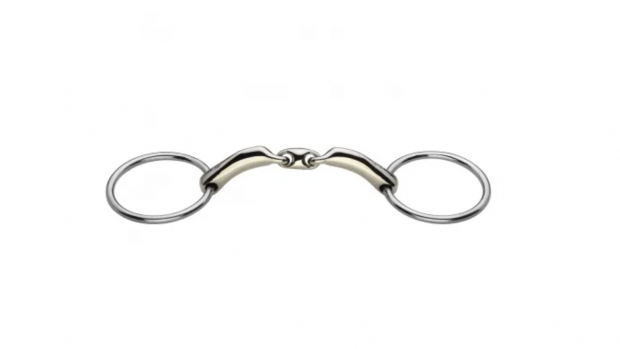Q: WHY do so many mobile saddlers offer direct services to consumers, and yet there seem to be no mobile loriners? I’d love it if a mobile bit bank came out to my yard, with an expert who could advise me while I tried different bits on my horse.
DA, Kent
THERE are two issues here. First, it may not be economically viable to provide mobile bit-fitting services, with most bits costing under £25 — vastly different to the cost of saddles. Second, there is no national register for bit-fitters. We asked Tricia Nassau-Williams,lorinery lecturer for the Worshipful Company of Loriners, for clarification.
“While there are courses run by the Loriners’ Company as part of the saddlery course, and a one-day course run by the British Equestrian Trade Association (BETA), there is currently no bit-fitting qualification or register,” Tricia explained.
“However, some retailers or specialists do travel out to give advice on bit selection and fitting. Bitting problems should be tackled with a combination of the skill and knowledge of your qualified equine dental technician (EDT), riding instructor and lorinery supplier/saddler.
“Your EDT can advise you on the condition and maintenance of your horse’s dental arcade and the animal’s individual requirements. Your horse should have his mouth and teeth routinely inspected every six to 12 months — this can help prevent problems becoming bitting issues.
“Next, you can involve your riding instructor who will have been studying you and your horse regularly,” Tricia added.
“A bit or bridle will only be as successful as the rider implementing it — it may be that you select several bits to be changed for different disciplines.
“ Third, a bitting technician or good lorinery/saddlery retailer can provide individual advice. This may be by a personal visit, but could just as well be in-store or over the phone. It is vital that the rider not only understands why they have decided to purchase a particular bit, but how it will act upon the horse.”
Tricia added that, while bitting education is sadly lacking in equestrianism, things are changing.
“The Pony Club is about to launch the lorinery achievement badge,” she said. “Maybe other organisations should give the subject of bitting a closer focus as well.”
Information
The Worshipful Company of Loriners Tel: 01386 751695 www.loriner.co.uk
British Equestrian Trade Association Tel: 01937 587062 www.beta-uk.org
This Q&A was first published in Horse & Hound (8 May, ’08)



